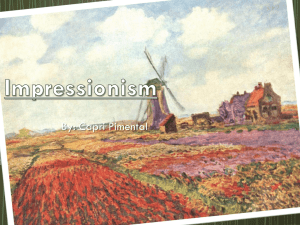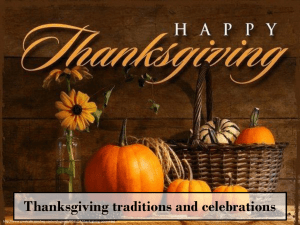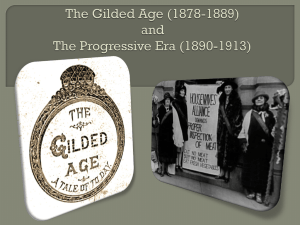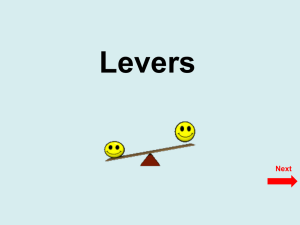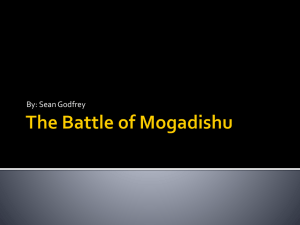Revelation, Inspiration, and Vocation
advertisement
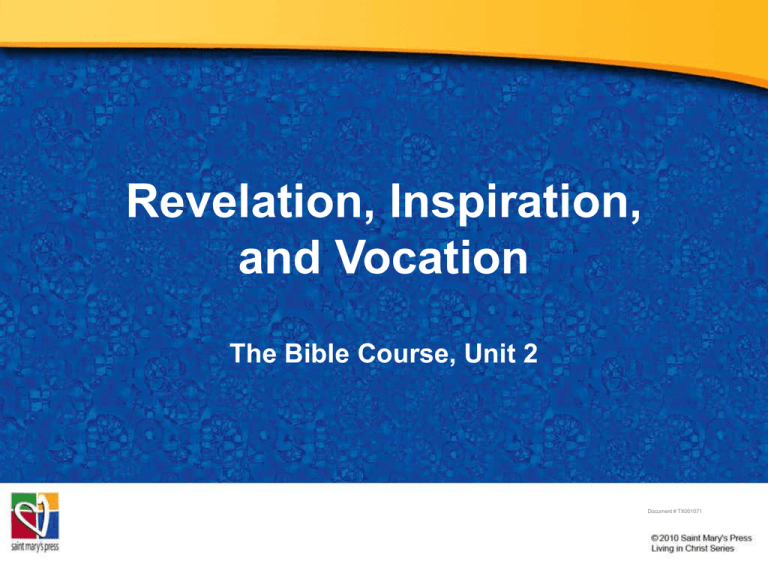
Revelation, Inspiration, and Vocation The Bible Course, Unit 2 Document # TX001071 Divine Revelation From the Latin revelare: “to unveil” or “to disclose” • Creation • Events • Jesus Christ How would you explain this to a friend? © allangelschurch.files.wordpress.com/2009/04/holy-spirit-stained-glass.jpg Divine Revelation is God’s self-communication of the divine plan to humanity through: How would you explain this to a friend? © allangelschurch.files.wordpress.com/2009/04/holy-spirit-stained-glass.jpg The divine assistance the Holy Spirit gave to the human authors of the books of the Bible so they could write what God wanted to communicate for our salvation. © allangelschurch.files.wordpress.com/2009/04/holy-spirit-stained-glass.jpg Divine Inspiration Vocation The call of all Christians: to know and love God • to share the divine message of salvation with others • to enjoy the eternal happiness of Heaven Image in public domain • How would you explain this to a friend? God’s Revelation to Biblical Figures Read these passages: Genesis, chapters 40 and 41 Exodus, chapter 3 © www.skeptic.com/eskeptic/07-05-09images/boy_reading_bible.jpg Luke 1:39–45 Note an aspect showing Revelation in each story. Share with the class: how the character(s) experience God what God communicates what vocation is given through God’s Revelation Genesis, chapters 40 and 41 Joseph experiences God through dreams. God communicates the future for the cupbearer and baker as well as for all of Egypt. Image in public domain Joseph is called through the interpretation of the dreams to lead Egypt as the pharaoh’s assistant. Exodus, chapter 3 God offers a theophany (“manifestation of God that is tangible to human senses”) through a burning bush. God communicates that he has heard the cry of the Hebrew slaves and introduces himself as “I am who am.” God calls Moses to return to Egypt to free the Hebrews. Image in public domain Luke 1:39–45 Mary and Elizabeth experience God through the movement of the babies in their wombs. God communicates the sacred connection between the unborn sons of these holy women. God calls Mary and Elizabeth to participate in his plan by faithfully raising these sons. © campus.udayton.edu/mary/thumbnails/Novo_Quadro_02bt.jpg © art-quarter.com/beck/joe/aj/1/6/Rembrandt-mother2.jpg © cruciality.files.wordpress.com/2009/01/rembrant-jacobwrestling-angel.jpg © britlitwiki.wikispaces.com/file/view/KingDavidTripleHarp.jpg 2 Samuel 7:1–29 © 4.bp.blogspot.com/_P-2w6S8aGfQ/SYy2zLD9nhI/ AAAAAAAAAk8/Qfq0JAo2s9U/s400/king_solomons_wisdom.jpg Stories for Using the “Jigsaw Process” Genesis, chapter 32 1 Samuel 1:1—2:10 1 Kings 3:4–15 Genesis 12:1–9 What is the land of Abram’s kinfolk? • Ur (mentioned later in the story) Why does the reading contain both regular text and poetictype text? The regular text narrates the story, and the poetic text is God’s speech. This might be an attempt to set God’s speech apart from, and above, human action. Image in public domain • Genesis 12:1–9 (cont.) What were the more specific meanings of Blessings and Curses? Blessing Curse A prayer of intention or a plea that calls on the power and compassion of God: punishment and condemnation by God shaming device to bestow a grace condemnation against injustice and crime to empower a healing prophetic warning to affect an event through God’s intervention priestly teaching against idolatry warning to obey a conqueror’s orders *Definitions adapted from the Saint Mary’s Press® Essential Bible Dictionary (pp. 28 and 40). Genesis 12:1–9 (cont.) Who are the “persons they had acquired in Haran”? - NAB footnote: “slaves and retainers that formed the social aggregate under the leadership of Abraham.” Who are the Canaanites? - They are the inhabitants of the land to which God directed Abraham to make his home, originally called Canaan. Canaan is the Promised Land and is also called Palestine. - In the Bible, they were called idolaters because of their worship of Baal and Asherah. - Through a series of occupations and wars, the Israelites eventually took over most of Canaan. © cruciality.files.wordpress.com/2009/01/rembrant-jacob-wrestling-angel.jpg Genesis, chapter 32 Jacob, prior to seeking reconciliation with his brother, Esau, wrestles all night with God. Due to his perseverance in the struggle, Jacob is renamed “Israel” for he has “contended with divine and human beings and have prevailed.” God also blesses him. © art-quarter.com/beck/joe/aj/1/6/Rembrandt-mother2.jpg 1 Samuel 1:1—2:10 Hannah is unable to bear children, so she prays to God in the presence of the priest Eli. He tells her that God will grant her prayers. Soon afterward she has a son whom she names Samuel. Hannah presents Samuel to God as a Nazirite (“one separated” or “one consecrated”) and offers a prayer of praise for how God has worked wonderfully in her life. © britlitwiki.wikispaces.com/file/view/KingDavidTripleHarp.jpg 2 Samuel 7:1–29 God, via the prophet Nathan, tells David that he will establish a kingdom and a “house” through David that “shall endure forever.” God promises David that he will always be with David and will never take his love away. In response, David offers God a prayer of deep praise and gratitude. © 4.bp.blogspot.com/_P-2w6S8aGfQ/SYy2zLD9nhI/AAAAAAAAAk8/Qfq0JAo2s9U/s400/king_solomons_wisdom.jpg 1 Kings 3:4–15 God appears in a dream to Solomon, David’s son, and says, “Ask something of me and I will give it to you.” Solomon replies, “Give your servant, therefore, an understanding heart to judge your people and to distinguish right from wrong.” God is pleased that Solomon did not ask for a long life, riches, or revenge against enemies. Thus God gives Solomon “a wise and understanding” mind. Revelation in Our Lives © www.wunderground.com/data/wximagenew/a/akdew/194.jpg How can I, or how have I, come to know God? © 2.bp.blogspot.com/_jCtbCw5Hrk/SALDv2bi87I/AAAAAAAACSs/W63HmeUiTgc/s400/discernment.jpg God’s Call to Every Individual God calls individuals into relationship with him by using their unique gifts and talents in his service. This process of using gifts and talents is known as vocation, from the Latin vocare, meaning “to call.” It is a function or station in life to which God calls us. © 2.bp.blogspot.com/_jCtbCw5Hrk/SALDv2bi87I/AAAAAAAACSs/W63HmeUiTgc/s400/discernment.jpg God’s Call to Every Individual The vocation of each individual implies active participation by human beings in the covenant created between God and humanity centuries ago. Recall from Unit 1: Covenant is a solemn agreement between human beings or between God and a human being involving mutual commitments. © 2.bp.blogspot.com/_U7Emw1biZlk/R_RN7QnaFBI/AAAAAAAACkU/u_gRS7AQCo/s400/Eli%2Band%2BSamuel%2B002.jpg Exploring the Call of Samuel 1 Samuel 3:1–21 What is necessary for people to hear and understand God’s Revelation? - One must be attentive, “awake,” and open in order to hear. To fully understand, often one needs help from others. How do other people support Samuel in his ability to hear and follow his vocation? - The priest Eli supports Samuel by saying how Samuel should respond to the voice he is hearing. He also tells Samuel, “He is the LORD. He will do what he judges best.” God’s Revelation to Biblical People © allangelschurch.files.wordpress.com/2009/04/holy-spirit-stained-glass.jpg Image in public domain Exodus, chapter 3 Luke 1:39–45 Genesis, chapter 32 © cruciality.files.wordpress.com/2009/01/rembrant-jacobwrestling-angel.jpg © britlitwiki.wikispaces.com/file/view/KingDavidTripleHarp.jpg © campus.udayton.edu/mary/thumbnails/Novo_Quadro_02bt.jpg Genesis, chapters 40 and 41 1 Samuel 1:1—2:10 © art-quarter.com/beck/joe/aj/1/6/Rembrandt-mother2.jpg Image in public domain 2 Samuel 7:1–29 © allangelschurch.files.wordpress.com/2009/04/holy-spirit-stained-glass.jpg God’s Revelation to Biblical People Image in public domain © 2.bp.blogspot.com/_U7Emw1biZlk/R_RN7QnaFBI/AAAAAAAACk U/u_gRS7AQC-o/s400/Eli%2Band%2BSamuel%2B002.jpg © 4.bp.blogspot.com/_P2w6S8aGfQ/SYy2zLD9nhI/AAAAAAAAAk8/Qfq0JAo2s9U/s400/king_solomons_wisdom.jpg 1 Kings 3:4–15 Genesis 12:1–9 1 Samuel 3:1–21

